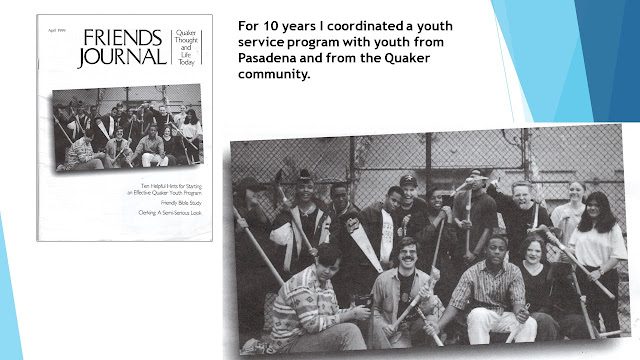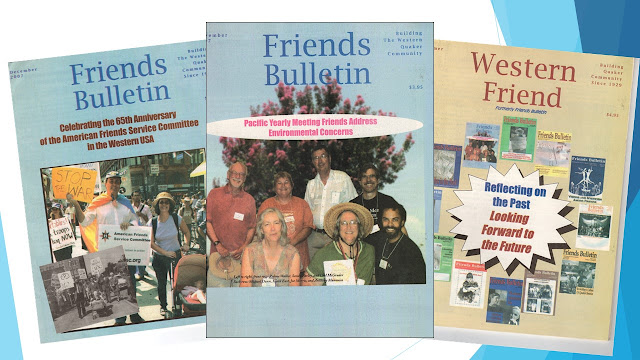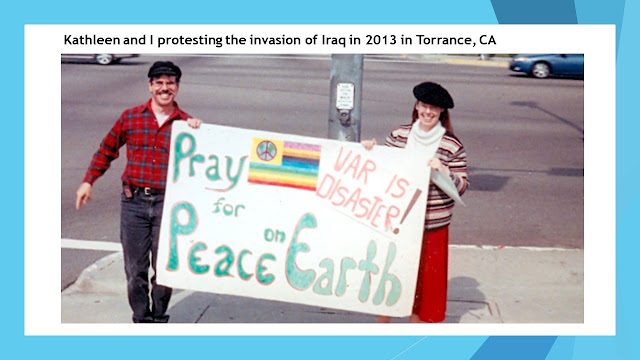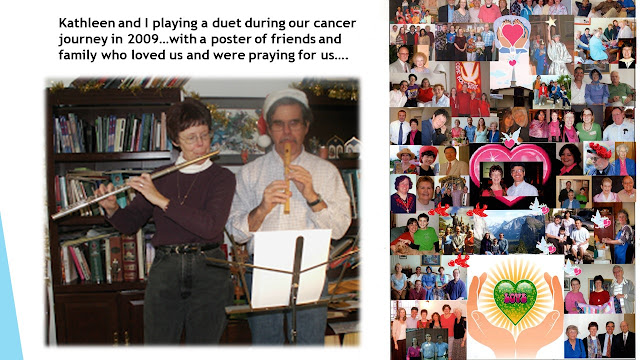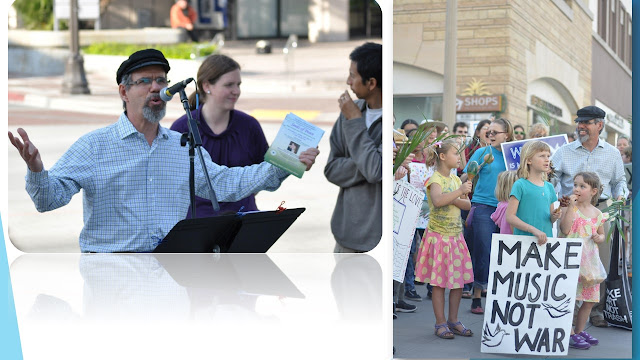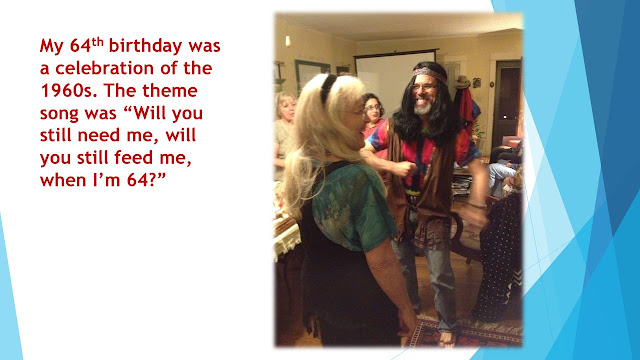1. Pasadena's civic center is a place that
the people of this city should be proud of. It was intended to represent
the heart and soul of our city. It was supposed to be a place of moral as well
as physical beauty. At one end of the civic center is the First Baptist Church,
which testifies to the spiritual life of our city and provides a beautiful view
of City Hall. Next to it are YMCA and YWCA, which preceded the City Hall, and
testify to how much our city cares for the poor and vulnerable. The statutes of
Jackie and Mack Robinson are placed in a 109-foot park area facing our City
Hall. Their monumental prominence testify to how our city has sought to
overcome the racism of its past and honor its African American heroes. Our
civic center has always been associated with religious and humanitarian work.
It has a sacred quality and deserves to be a place for reflection, not a place
of commerce. The public have made it clear what they want. There is overwhelming and broad-based public
support for nonprofit housing, public use and a social enterprise restaurant at
the city-owned YMCA building. During the June 3 City Council meeting, 40 speaker cards were pulled and at least 100 people supporting PSH and public use were present. We represent a broad cross section of the city: religious leaders, housing justice advocates, homeless service providers, preservationists, Sister City and tree advocate, and even an attorney for developers. Members of the following churches and organizations were present: SheDoes (a group promoting rapid sheltering of homeless women), First Baptist, Fellowship Pasadena, Orange Grove Friends (Quaker) Meeting, All Saints Episcopal, First United Methodist Church Pasadena, Pasadena Church, Epicentre Church, New Guiding Light, Friendship Baptist, Abundant Harvest, Interdenominational Ministerial Alliance, and Clergy Community Coalition.
YWCA stands for “Young Women’s
CHRISTIAN Association.” This sounds obvious but it’s worth repeating. This
building was built for a Christian purpose—helping those in need.
That's why we are urging the City Council to use the Y for its intended purpose, to help those most in need.
2. We are concerned that this Request for Proposals (RFP) does not to take into account state law AB 2135 which requires
prioritizing supportive and affordable housing on surplus land. Here’s what the AB
2135 requires:
Enacted in 1968, the
Surplus Land Act requires local agencies—such as cities and transit agencies—to
prioritize affordable housing, as well as parks and open space, when disposing
of surplus land. Specifically, local agencies must provide a first right of refusal
to entities that agree to use sites for affordable housing or parks and open
space. When local agencies dispose of
surplus land, they are required to give notice to local public entities and
organizations involved in affordable housing development. Once a preferred
entity expresses interest, the parties must enter into good faith negotiations
to determine a mutually satisfactory sales price or lease terms. Prior to AB
2135, if the parties did not agree to a price within 60 days, the local agency could
then dispose of the land without further requirements….AB 2135 extends the negotiating period between local agencies and
purchasing or leasing entities from 60 days to 90 days. See http://www.publiccounsel.org/tools/assets/files/0679.pdf and
https://leginfo.legislature.ca.gov/faces/billTextClient.xhtml?bill_id=201720180AB2065.
By
prioritizing affordable housing, the Mayor was simply following this state law
and respecting the desires of his constituents. By rushing this RFP through and
making it difficult for supportive housing developers to submit a proposal, the
City Council may be violating the law; it is arousing opposition from the
public. This does not bode well for the future of our beloved civic center. If
this project is rushed through, it will not be something that people of faith will be proud of.
3. It is problematic to require a 45-foot “setback” that would encroach upon the 109-foot space adjacent to City Hall
that is an historic garden/park. This set back must allow for a developer to be
flexible—with set backs up to 109 feet. There is wide-spread support to
maintain this 100-year-old Civic Gardens located at the southwest and northwest
corners of Holly and Garfield Avenue. The
current CUP and RFP provide virtually these same set back concessions that were
granted to the failed Kimpton Hotel project, which aroused fierce opposition
from many in our city and led to the project being rejected. Einstein once defined insanity as doing the
same thing over again and imagining you would get different results. We are concerned that the RFP is misleading by
implying that this pending litigation not to encroach on the 109 feet will
somehow disappear by the end of the year. This is not what the litigants
believe or anticipate. Developers need to be told that there is intense
community opposition to commercial development if there is encroachment on the
109-foot park area that would lead to a lawsuit and public outcry that could
delay or even stop development. At very least, we need to foster trust not
erode trust in the City Council and create a project that people of conscience
would not be proud of. The civic center is too important to push though quickly
without a consensus from the community.
The city has been
looking for park space in the Central District. Here is the perfect place to
use the city’s impact fees to declare, strengthen and maintain a park in the
109 foot garden area.
We are urging the
City Council to reconsider this RFP and give preferential consideration to
public use that includes supportive/nonprofit housing and public use of at the
Y. This is what the public wants, and what we feel is in the best interest of
the city.
5. We are concerned that you are selling our civic center to the
highest bidder as if it’s just another piece of expensive real estate that you
can get tax revenue from. That’s not what a civic center is supposed to be, and
it’s not what your constituents want. The Civic Gardens at the SW
Corner and the NW corner of Holly and Garfield is part of
the 100-year historic setting
of Pasadena’s Civic Center, going back to the Bennett
Plan in the early 1920s. As recommended by the Civic Center
Implementation Task Force, the City should commission a Cultural Landscape
Report to establish the historic significance to
this. Instead, you
commissioned a landscape architect, Olin, assuming that the land
had no cultural or historical significance worthy of preserving. We
agree that a Cultural Heritage Report should be done before
encroaching on the 109-foot parkland with Sister City trees and statues of Mack
and Jackie Robinson.
A Cultural Landscape Report is
prepared by qualified professionals based on appropriate methodologies and techniques for cultural landscape research,
documentation, and evaluation. Cultural landscapes can range from thousands of
acres of rural tracts of land to a small homestead with a front yard of less
than one acre. Like historic buildings and districts, they reveal aspects of
our country's origins and development through their form, features, and the
ways they were used. Cultural landscapes also reveal much about our evolving
relationship with the natural world. Such a report would help determine how
best to preserve our civic center’s unique landscape that was intended to
highlight and complement the grandeur of our City Hall. We urge you to do such
a report before selling or leasing our precious heritage to the highest bidder
and destroying forever our precious cultural landscape. Our civic center should
reflect Pasadena’s moral values, trusting God as provider without needing to
resort to a to luxury hotel.
6. The draft RFP is biased in favor of commercial development and blocks
housing for homeless people by not including supportive housing in
the project goals and objectives. It is stated in the RFP that the project
should “serve as a catalyst for continued economic growth and provide economic
benefits” (p. 5). We are also concerned that only city staff will be
involved in considering RFPs. How can we be sure that they will reflect the
community’s concerns? For this reason, I propose a broader selection of
community members who have consistently shown up to participate in the
assessment together with city staff. We also propose that there be a detailed
scoring criterion with points which equally include the use of the Y
for permanent supportive housing, non-profit, and public
uses (which aren’t mentioned in the RFP). As the Mayor rightly pointed
out, prioritizing commercial development will divide the City, delay this
much-needed project, and cause further damage to this precious historic
legacy. We are urging the City Council to put this RFP in
abeyance to allow other projects to be considered such as a community project
that includes housing for homeless individuals, nonprofit uses, and public
space in the Y. This is what the public wants, and what we feel is in
the best interest of the city.
7. We are concerned that City Council members may
be fostering a negative attitude toward homeless people and supportive housing
by talking about over concentration as if supportive housing is problem instead
of a solution. The affordable and supportive housing in our city enhances a
neighborhood, it doesn’t bring down property values or create negative outcomes
like increased crime. Affordable and supportive housing often looks more
appealing than market rate housing and it’s almost always more environmentally
friendly. Supportive housing is needed in the central district because that
where the vast majority of our homeless residents live. Placing supportive
housing near where homeless people live is a best practice. When we take our
homeless neighbors off the street, they no longer have the stigma of being
homeless. That’s good for businesses as well as those who are
housed. That’s not just my opinion, that’s what Paul Little of the Chamber of
Commerce stated in a documentary produced by the Housing Department. Housing
our homeless neighbors at the Julia Morgan Y would take chronically homeless
people off the streets of the central district and place them in an environment
where they reclaim their lives. This is why the churches strongly support using
the Y for this purpose.
We are deeply concerned about the women who have been abused and
have ended up homeless and are living on the streets of our city. It seems like
a travesty to take a place intended to shelter low-income women in need and
turn it into a for-profit deluxe hotel. Other cities like Honolulu, Long Beach,
and San Pedro have honored the YMCA legacy by turning historic Ys into
supportive housing. Using it for commercial use is a desecration of its
original intent. How will people of faith and conscience feel when they will
look upon our civic center with a hotel pushed by a handful of City Council
members with little or no public support? I wonder how Julia Morgan would feel
about her name associated with such a misuse of her architectural work. Julia
Morgan won a posthumous architectural award from the American Institute of
Architects, it was pointed out that she was not only a “super woman” who
designed Hearst Castle, she was concerned about the poor and vulnerable and
built 22 YWCAs. I believe that Pasadena is dishonoring Julia Morgan’s legacy by
turning her Y into a deluxe hotel. I therefore urge you to rewrite the CUP and
RFP so it priorities housing for our homeless resdients, especially women.
8. Since this is an historic site, with monumental busts of Jackie and Mack Robinson, it's important to know that when Jackie
Robinson retired from baseball, he established the
Jackie Robinson Construction Company to build housing for low-income families
in Harlem. Robinson was passionate about social justice.
How do you think Jackie Robinson would
feel if he knew that his statue was next to an historic YWCA that had been
turned into a deluxe hotel? We would truly honor the legacy of Jackie
Robinson if his statue was next to a beautiful historic site where low-income
people could live in dignity? Let's make the civic center and Robinson park a place that the City can be proud o.
10: Supportive housing will be an economic as wellas social development of our community. The City
can require local hires for affordable and homeless housing. For Heritage
Square North, 20% were local hires, and 60% of materials used were purchased
locally. Supportive housing would provide economic benefits to the local
community in ways that commercial development could not guarantee. Heritage
Square left $ 7 million in the City because of its policy to provide local
contracts and supplies. Unlike city funded affordable housing projects, there
is no requirement for commercial developers to hire local contractors. Nor are
commercial ventures required to hire local employees. Therefore, commercial
development would not necessarily provide any jobs for local
residents nor would there be any requirement for material to be purchased
locally. It makes much better economic sense for the City to invest in supportive
housing in an area where such housing is urgently needed, and where most of
Pasadena’s homeless residents currently live. Please revise your CUP and RFP to
prioritize much needed supportive housing.
11. Service providers are doing their the needs of the poor with
food, clothing and other support serves. One of the biggest needs is for
housing. Lack of affordable housing is a major causes of poverty and
homelessness. Homeless service providers have testified to this Council
many times that the lack of homeless housing in this city is making very hard
for them to find housing for those who are homeless. The latest Homeless Count
has some good news. Our efforts are having an impact in reducing homelessness,
but we haven’t yet reduced the number of chronically homeless people, those who
are most visible. That population has increased from 269 from 238. These are the
people that business complain the most about. Here’s what the 2019 Homeless Count says about this group.
While notable progress
has been made to reduce homelessness in key subpopulations, the number of
people experiencing chronic homelessness increased and now accounts for
approximately 50% of the total homeless population. People experiencing chronic
homelessness have a disabling condition and have experienced homelessness for
more than one year. These individuals typically have complex, long-term health
conditions that are further exacerbated by living on the streets without a
stable home. Their higher needs also make them more visible in public spaces.
To make meaningful advancements towards reducing chronic homelessness and supporting
a highly vulnerable population with the greatest service needs, increased
investments in proven solutions, primarily supportive housing, are critical.
Since there is only one supportive
senior housing project in the pipeline, we need to create multiple supportive housing
projects, both short- and long-term. Reducing our homeless population by
providing housing will make our community safer and better for business. That’s
why I am urging you to re-write the CUP and RFP to prioritize supportive housing
at the Julia Morgan Y.
12. It is troubling that current RFP prioritizes commercial development over people. However, I also feel it’s worth considering the
financial advantages of prioritizing supportive housing in your RFP and CUP.
Chronically homeless people are likely to cost society more money in
health care than younger and healthier homeless residents. Given the City’s
budget crunch, it makes more economic sense to house our chronically homeless
neighbors in facilities with services provided by the County’s Measure H
funding than to let them sicken and die on the streets, with various agencies
in the City footing enormous medical bills. A Rand study showed that housing
homeless residents has saved the county $1.20 for every dollar spent on
housing and supportive services. According to
an Economic Roundtable study, the cost of dealing with a homeless individual in
LA County is around $5038 per month, vs $605 per month when they are provided
with supportive housing. These costs increase with the age of homeless
individuals. Based on this study, we can estimate the cost to Pasadena of
having 69 homeless seniors living on the street to be around $4 million per
year. Housing them in supportive housing would save $3 million a year. This would
be a huge financd






































